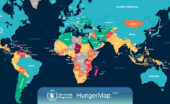Re Ian Bremmer 'Could third-party candidates upend the 2024 US election?' 3 April The current political movement in the USA…
Wednesday Night #1727
Written by Diana Thebaud Nicholson // April 8, 2015 // Wednesday Nights // Comments Off on Wednesday Night #1727
Hoping everyone enjoyed a Happy Easter/Passover, or simply a long, restful, weekend. For those for whom Easter or Passover was the choice, we offer this: Jesus’ Final Passover — Was the Last Supper really a Seder?. We had not realized that there was such debate about the question, or that there was even a question.
Whatever crisis arises in the world, it is a pretty sure bet that Canadian political junkies will be glued to news of the Mike Duffy trial for the next 40 days (weekdays from April 7 to May 12, then from June 1 to June 19). So much so that a special edition of At Issue was aired on Tuesday night with Peter Mansbridge, Andrew and Bruce hanging on to every word from Jennifer Ditchburn, the only one who could deliver an eyewitness account of opening day. And why the fascination? As Campbell Clark points out in the Globe & Mail, At the Mike Duffy trial, Stephen Harper will be the tie that binds.
The Duffy trial inspired Preston Manning to write a column Let’s train our leaders to be ethical in praise of the the Institute of Corporate Directors-Rotman initiative, the Directors Education Program, offered at business schools across the country. and noting that “Ethics became a foundational component of the ICD’s extensive course offerings.” This has stimulated an exchange with some friends as to whether one can teach ethics (or morality). And whether, when an individual is fully aware of what is ethical behaviour, he or she may be just as likely to ignore it in favour of self-interest. Do you think ethics can be drilled into a classroom full of ambitious MBAs? Is not Wall Street one of the outstanding examples of failure to apply ethical standards? So – any use thinking we could instill ethics in the minds of those political animals who would rather pursue less than pure strategies?
Should you begin to be bored with the Duffy trial – how could you? – there will be respite on 21 April with the federal budget and on 5 May with the Alberta elections. And, yes, on-going anti-austerity demonstrations in Quebec. Doesn’t really sound like an invitation to Spring Frolic, does it?
Did anyone notice the irony of Joe Oliver’s announcement of the budget date from the Canada Goose HQ? For those who have not been paying attention, there has been a complaint lodged against CG regarding the coyote fur used to trim Canada Goose parkas.
One happy Wednesday Night warrior wonders what the odds are that the writ will be dropped soon after the budget.
Oh, goody – an early election, just what we asked for from the Easter Bunny. While we mean no disrespect (when did that expression come into such wide use?) to some good friends who are exemplary politicians, we cannot resist submitting The Guardian’s Democracy v Psychology: why people keep electing idiots — The 2015 election campaigns are under way, and it’s clear that doing or saying unintelligent things is no barrier to political success. Unfortunately, there are several psychological mechanisms that lead to apparent idiots being elected into powerful positions. We do not for one minute consider Stephen Harper an idiot, but we do wonder about some of his henchpersons.
Looking beyond our borders, the breakthrough in the Iran nuclear talks would appear to be a cause for considerable rejoicing – and was for a nanosecond before Bibi found the nearest microphone through which he could blast the U.S. (conveniently overlooking the fact that these were not bilateral talks). As Juan Cole puts it, “Prime Minister Binyamin Netanyahu was given repeated access to millions of Americans to talk trash about the deal over the weekend”, giving great comfort to the Republican foes of President Obama who have been doing their best to ensure that no deal made by the U.S. can ever be trusted by its allies. If we sound angry, we are.
We commend to you the fine analysis from our friend C. Uday Bhaskar (aka The Commodore) Iran nuclear agreement and turmoil in West Asia in which he links three developments of different nature in Iran, Yemen and Kenya during the week of April 2 that draw attention to the potential of major changes in the prevailing regional strategic and security framework, even as radical extremism and related terrorism remain an abiding challenge. If you have time to read only one commentary, this should be it.
The situation in Yemen is deteriorating minute by minute. The deadly Saudi air strikes, in tandem with naval bombardment, are far from surgical, wreaking havoc – and civilian deaths. On monday, in yet another of those only-in-the-Middle-East moments, Turkey’s President Erdogan (who supports the Saudi bombardment) was in Iran and joined Iranian President Rouhani in calling for a negotiated settlement.
Kenya is still reeling from the murderous attack by al Shabab in Garissa. Retaliation by the Kenyan air force which bombed ‘camps’ in Somalia may or may not have been effective. It is hard to see an easy end to this struggle.
While the Nigerian elections were resolved with minimal problems and former president Goodluck Jonathan behaved like a good loser, the country’s problems are far from over. Corruption is endemic – so bad that it is estimated that $20 billion in oil revenue has gone missing in the petroleum ministry alone. Prevailing over Boko Haram cannot be accomplished without a huge restructuring and revitalizing of the army. The economy is unhealthy and President-elect Buhari is an “economic illiterate” – and that’s what his friends say.
Lightening up a bit, we have been privy to a wonderful exchange regarding the Greek claim for war reparations from Germany, prompting one comment that Putin might well claim the same from Russia, and another that Tunisia as legal successor to Carthage could demand reparations from Italy, as the legal successor to the Roman Empire. Going further, who knows what claims might be made against Alexander the Great’s estate in Macedonia? According to one wag, the main claimant should be Persia, who might tack the claim on to their other demands related to the nuclear issue, and the payment should be made by Greece (not present day Macedonia!) where there seem to be problems meeting other current liabilities. So we come full circle. Perhaps drop that idea?



